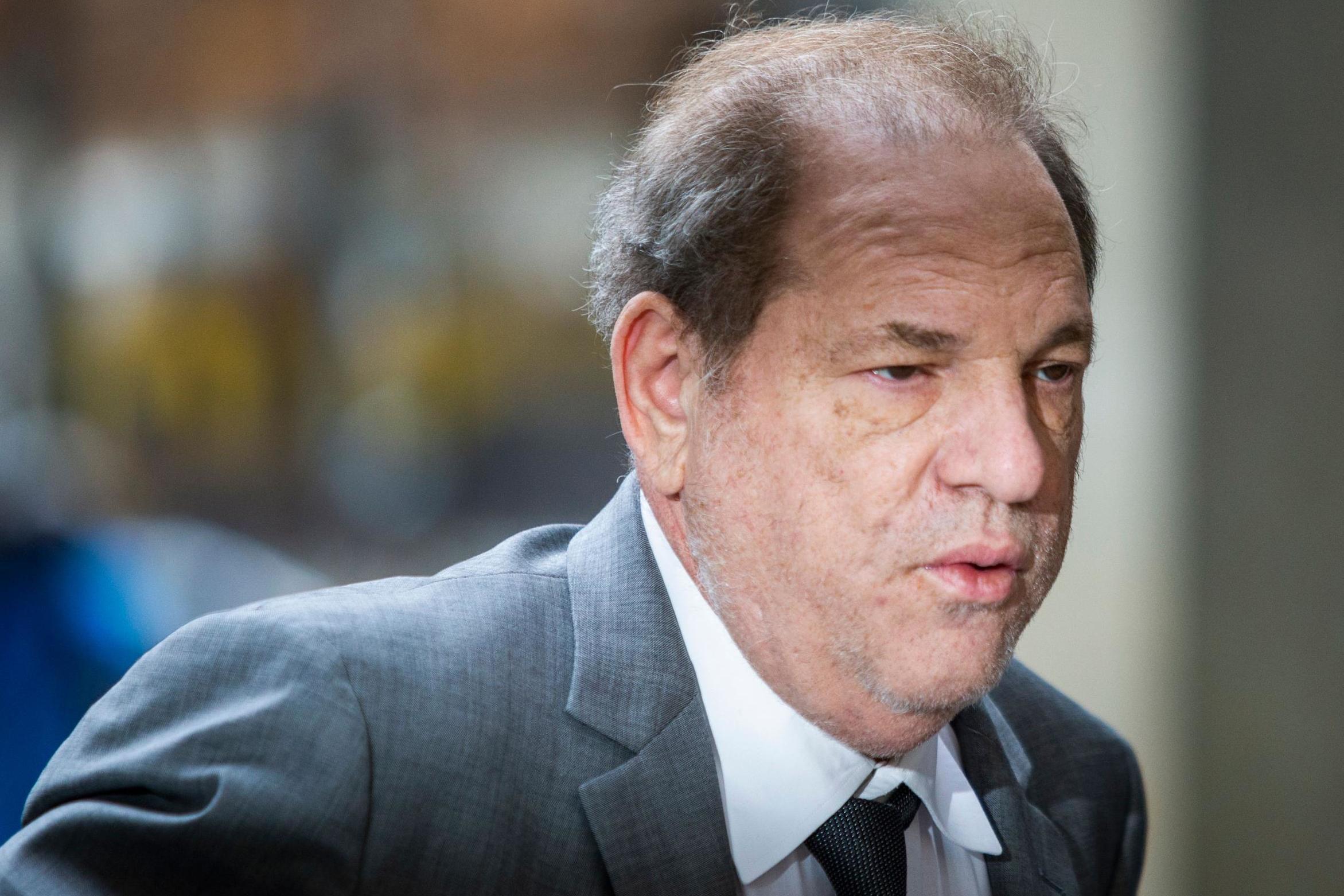Harvey Weinstein violated bail conditions by mishandling electronic ankle tag, court hears
Case of producer who is charged with rape and sexual assault goes to trial in January

Your support helps us to tell the story
From reproductive rights to climate change to Big Tech, The Independent is on the ground when the story is developing. Whether it's investigating the financials of Elon Musk's pro-Trump PAC or producing our latest documentary, 'The A Word', which shines a light on the American women fighting for reproductive rights, we know how important it is to parse out the facts from the messaging.
At such a critical moment in US history, we need reporters on the ground. Your donation allows us to keep sending journalists to speak to both sides of the story.
The Independent is trusted by Americans across the entire political spectrum. And unlike many other quality news outlets, we choose not to lock Americans out of our reporting and analysis with paywalls. We believe quality journalism should be available to everyone, paid for by those who can afford it.
Your support makes all the difference.Harvey Weinstein violated his bail conditions by mishandling his electronic ankle-monitor, which left his whereabouts unrecorded for hours at a time, a New York prosecutor has alleged.
The prosecutor, Joan Illuzzi, spoke at a pre-trial hearing for Mr Weinstein, who is free on $1m (£760,000) bail. He is accused of leaving at home a piece of the monitoring technology that keeps the ankle bracelet activated.
Defence attorney Donna Rotunno denied it was deliberate. She blamed "technical glitches", such as dead batteries. Mr Weinstein has pleaded not guilty to charges of rape and sexual assault.
“It has nothing to do with any manipulation of the bracelet,” Ms Rotunno told reporters after leaving court on Friday. She acknowledged that, on at least one occasion, he had forgotten part of the device when he left the house. “The minute he realised he forgot it, he made a phone call,” she said.
A judge deferred any decision about whether Mr Weinstein would face any penalty over the alleged violations until next week.
The producer was in court for one of many proceedings that courts across the state are scheduling to apprise defendants of reforms to New York’s bail system that are set to take effect on 1 January.
State legislators passed a law this year eliminating cash bail for most non-violent crimes. For poorer defendants facing lesser charges, these appearances could mean release from jail in the new year — or refunds for those who have posted bail.
Those outcomes are unlikely to happen in Mr Weinstein’s case, which is scheduled to go to trial in January.
Unlike the former film producer, poorer defendants who have been hauled into courthouses for lesser offences have ended up in jail if they are unable to afford a bail of even a few hundred dollars.
That financial and fairness divide is one that New York lawmakers are aiming to solve with the sweeping bail reforms.
Mr Weinstein has pleaded not guilty to charges that he allegedly raped a woman in a Manhattan hotel room in 2013 and performed a forcible sex act on a different woman in 2006. He maintains that any sexual activity was consensual.
Additional reporting by agencies